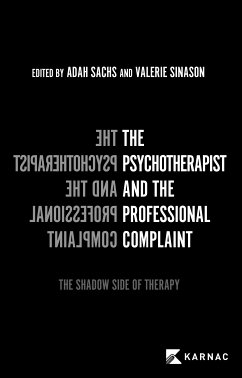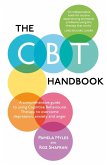This outstanding book is an update on where the mental health profession's complaints system is now. Its timely analysis follows in the wake of prior work on reform, which include the attempt in 2001 at the House of Lords to statutorily regulate psychotherapists in the UK. (Alderdice/Casement et al.) -- Professor Ann Casement, LP, Past-Chair UKCP
The patient's word was once easily dismissed against the word of the psychiatrist, doctor or therapist, leaving the patient vulnerable. Recognising this inherent risk in the relationship between clinicians and patients, professional regulations have gradually been established to facilitate patients' access to information, support and recourse. However, while most professions also explicitly protect their own members, there are, notably, no systems in place to protect psychotherapists. The current complaint procedure presumes the therapist's guilt until proven innocent, rather than the reverse.
The Psychotherapist and the Professional Complaint explores this problem with sensitivity and rigour. In these chapters, the contributors examine ways to address serious conflicts in the psychotherapy relationship and the role of professional bodies in protecting their members while regulating their performance. Acknowledging both strengths and flaws, they outline the historical context and future prospects of the current complaint procedures. This book invites us to think and speak on the controversial subject of complaints, supporting patients, therapists and policymakers alike.
The patient's word was once easily dismissed against the word of the psychiatrist, doctor or therapist, leaving the patient vulnerable. Recognising this inherent risk in the relationship between clinicians and patients, professional regulations have gradually been established to facilitate patients' access to information, support and recourse. However, while most professions also explicitly protect their own members, there are, notably, no systems in place to protect psychotherapists. The current complaint procedure presumes the therapist's guilt until proven innocent, rather than the reverse.
The Psychotherapist and the Professional Complaint explores this problem with sensitivity and rigour. In these chapters, the contributors examine ways to address serious conflicts in the psychotherapy relationship and the role of professional bodies in protecting their members while regulating their performance. Acknowledging both strengths and flaws, they outline the historical context and future prospects of the current complaint procedures. This book invites us to think and speak on the controversial subject of complaints, supporting patients, therapists and policymakers alike.
Dieser Download kann aus rechtlichen Gründen nur mit Rechnungsadresse in A, B, BG, CY, CZ, D, DK, EW, E, FIN, F, GR, H, IRL, I, LT, L, LR, M, NL, PL, P, R, S, SLO, SK ausgeliefert werden.









